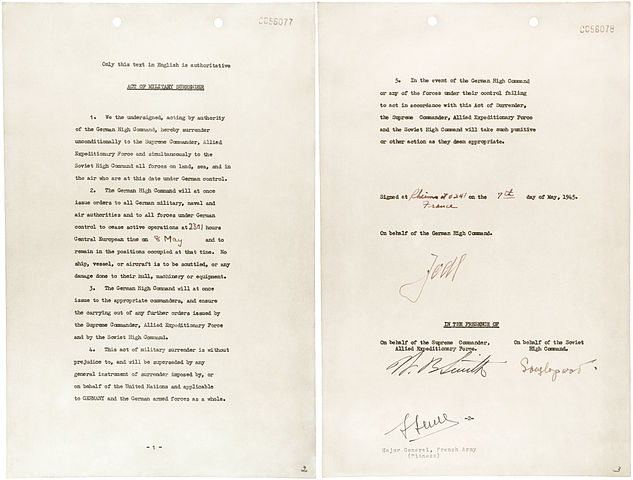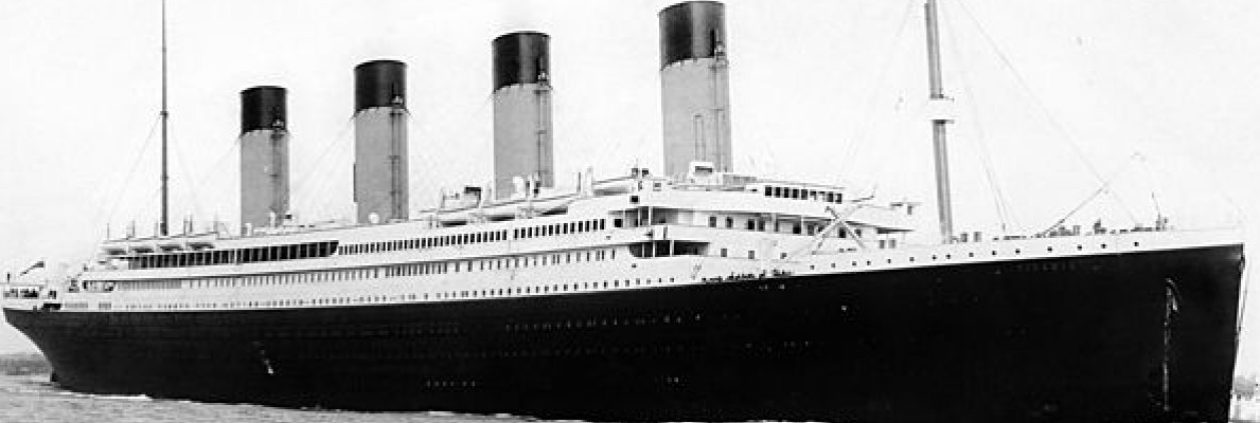
Original source: U.S. Government Employee
Public Domain/Wikimedia Commons
It was a day long anticipated for both Great Britain and the United States. After years of hard fighting on both land and sea, the war against Germany was at an end. 8 May 1945 all German troops in Europe laid down their arms and surrendered. In formerly occupied cities and throughout Britain and the United States, celebrations broke out. Flags and banners were hung, people gathered in the streets, many went to church to give thanks to God for this wonderful day to finally arrive. Nazi flags, banners, and reminders of their former occupiers were quickly taken down and destroyed. The hard work of rebuilding would begin soon and for many countries that had suffered under Nazi occupation, it would take time. Germany in many areas would have to be rebuilt from the bombardment that had destroyed many cities. American and German prisoners of war were released and sent back home.

Source: Imperial War Museum
Public Domain/Wikimedia Commons
German troops tried, if possible, to surrender to British or American forces. They believed they would be better treated and a better chance of living. The Soviets had a reputation for being particularly nasty to captured German officers and soldiers. In Salzburg, Austria the two oldest sons of Captain Georg von Trapp, later to be immortalized in The Sound of Music, found their home they left behind when the family fled Austria to Italy (their tale, to be recounted later, is a fascinating one). They learned their home had been occupied by none other than Heinrich Himmler, the leader of the hated SS and under whose leadership the Final Solution had been carried out. The Trapp family would later give their home to a religious order that lives there to this day.
The war would linger a day longer in the East. The Soviets continued to battle small pockets of resistance in Silesia until they surrendered. This marked the end of hostilities in Europe for the Russians, who consider 9 May 1945 their day to celebrate the defeat of Germany. Stalin announced the end on a radio broadcast: “Your courage has defeated the Nazis. The war is over.”
Sources:
—. “Allied Nations Worldwide Celebrate V-E Day.” HISTORY, 7 May 2024, www.history.com/this-day-in-history/victory-in-europe.
Chen, C. Peter. “Germany’s Surrender.” WW2DB, ww2db.com/battle_spec.php?battle_id=152.
Imperial War Museums. “What You Need to Know About VE Day.” Imperial War Museums, www.iwm.org.uk/history/what-you-need-to-know-about-ve-day.
Swick, Gerald, and Gerald D. Swick. “V-E Day 1945: The Celebration Heard ’Round the World.” HistoryNet, 4 Oct. 2021, www.historynet.com/v-e-day-1945-the-celebration-heard-round-the-world.
—. “Victory in Europe Day.” Wikipedia, 9 May 2024, en.wikipedia.org/wiki/Victory_in_Europe_Day



